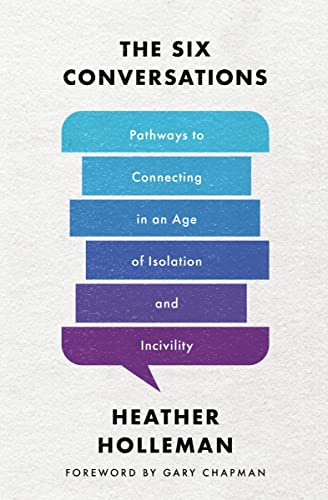

In the previous post, Heather’s theology of loving conversations confirmed and validated my conclusion that loving conversations should be recognized and taught as a spiritual discipline.
Recently Richard Beck has written about “mistakes of spiritual formation efforts”. His series gives important context for concluding conversation is/should be a spiritual discipline. Reading the entire series is important, but, in the 5th post he addresses: “… what is missing from almost every spiritual formation effort is direct, interpersonal practice of the interpersonal and emotional virtues.”
The spiritual discipline we are looking for must possess these features:
A practice that is…
- daily
- situational
- direct
- interpersonal
Let’s walk through the list to show how such a practice fills the gap.
First, this is a practice. It’s not an educational intervention. This is something we do, actions we take.
Second, this this a daily practice. This is something we wake up to each day, Sunday through Saturday. This daily engagement provides us with time on task, allowing us to acquire those 10,000 hours of practice which shape our automatic responses. This is a practice similar to practicing a musical instrument every day.
Third, the practice is situational. If we’re practicing how to deal with emotional triggers, we have to practice at the specific times and places where we struggle. If, for example, you’re struggling with impatience with a particular person in your life (say a co-worker or a family member) you need to practice patience with that specific person. Being patient elsewhere doesn’t form you where you’re struggling. It’s like a smoker not smoking during a movie in a non-smoking theatre. Any smoker can resist not smoking during the show. Self-control in that context isn’t the issue. Our battles in acquiring virtue are not vague and generic, but contextual and situational. Focusing on this situational specificity helps us overcome the chronic indirectness of most spiritual formation efforts. We need a practice that helps us right here and right nowwhere we struggle and fail.
Fourth, the practice has to be direct. That is, if you’re wanting to be more kind the practice has to be practicing kindness, directly. You’re not praying or fasting, you’re being kind. To be sure, you should keep praying and fasting, but practicing kindness has to involve practicing kindness.
And finally, the practice has to be interpersonal. This is obviously implied in everything already shared, but we make the point separately to highlight that this practice is a face to face practice that shapes how we treat and respond to people, especially the person standing right in front of me. There are many spiritual practices that demand we retreat from social life, taking us off into the contemplative “desert,” but we need a practice that forms us within the crucible of daily life with others. A Dietrich Bonhoeffer wrote, we share “life together.” We need a practice that forms us within and for this intimate and difficult social space.
— Loving conversations address every criteria Beck describes.
Conversation fills the “spiritual discipline gap”. —
Adoption and implementation of conversation as a spiritual discipline is fraught with challenges; not the least of which, are prevailing assumptions about traditional spiritual disciplines :
(inward -Bible study, prayer, meditation, and fasting;
outward – service, solitude, submission, and simplicity;
corporate– worship, celebration, confession, and guidance.)
Loving conversation does not fit neatly into our perception of spiritual discipline. For instance, loving conversation, lacks the “spiritual pizzazz” of traditional spiritual disciplines, leading us to dismiss the idea out of hand.
Beck’s four mistakes we make in regards to spiritual disciplines …”point to a gaping hole in the spiritual formation literature, a hole that sits smack in the middle of spiritual formation books, the guidance of spiritual directors, seminary syllabi, and spiritual formation efforts within the church. We can call this hole “the missing spiritual discipline.” Although Beck’s conclusion about what the “missing spiritual discipline” is, differs from mine, I maintain loving conversation as a spiritual discipline deserves serious consideration.
What are you thinking?
STILL ON THE JOURNEY